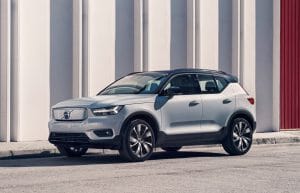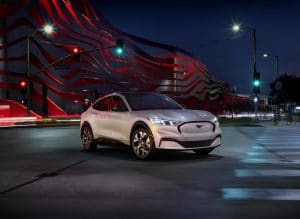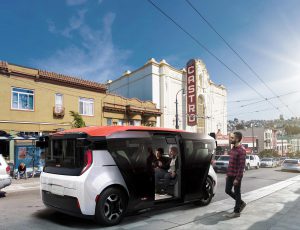The coronavirus pandemic is having a significant impact on the automotive product pipeline, leading manufacturers to delay the debut or rethink the timing of some new products while, in some cases, potentially canceling projects just in the pipeline, according to industry analysts.
The debut of dozens of new 2020 and 2021 models have been impacted, in part because of the cancelation of the Geneva, Detroit and Paris auto shows where they were scheduled to be unveiled. But the impact is likely to be felt as far out as mid-decade because of the cash struggles manufacturers are now facing.
“There are thousands of projects within our R&D, and we have to question whether we need to do them all,” Håkan Samuelsson, the CEO of Volvo, told Automotive News Europe.
(Volvo moves forward with plans to build batteries.)
Some of those projects very likely will be delayed, with others being scrubbed entirely. Among those that could be impacted are modest midcycle updates where Volvo could save tens of millions of dollars by holding onto original designs for a few extra years.
There has been talk that the Swedish automaker might be working on a new, top-line model to be called the XC100, targeting Range Rover’s offerings. That is considered highly vulnerable to any pullback by Volvo.
But there are some areas where Volvo is proceeding full steam ahead, so to speak. “No, we will not compromise on our electrification strategy. Electrification is Volvo’s path forward, and we will continue our plans to electrify our product range,” Mårten Levenstam, the carmaker’s global strategy chief, told Wired magazine.
Automakers are investing tens of billions of dollars in electrification, and that is one area where the industry may have to rethink its plans, Thomas King, the director of automotive data for J.D. Power, said during a webinar earlier this month. The problem, he explained, is that battery-based technology is a huge cash draw with little chance of generating any significant profits anytime soon. Instead, manufacturers could feel pressed to focus on high-margin product lines, such as large SUVs and full-size pickups.
(Volvo electrifies across its entire model line.)
But the industry may not have that option as manufacturers face strict new emissions and energy efficiency mandates in key markets around the world. Even in the U.S., where the Trump administration has laid out plans to trim back mileage rules, that faces a major court challenge. In most instances, automakers would be hard-pressed to meet the new guidelines without next-generation battery technology.
The test could come during the next six to 12 months as a variety of pure battery-electric vehicles were scheduled to come to market. Porsche just began delivering the third version of its Taycan to U.S. dealers and Ford is expected to move ahead with the midyear launch of the Mustang Mach-E. Volkswagen has said it also is holding to plans for this year’s launches of the all-electric ID.3 and ID.4 models.
But a pair of surveys conducted by IHS Markit in recent weeks found that 22% of the 140 companies polled expect to see battery-car projects to suffer at least some impact. Fully 96% of those companies expect some of their broader R&D efforts to take a hit.
Another area likely to be impacted will be development of autonomous vehicles. Though most industry experts still believe the technology will become ubiquitous at some point, it is rolling out slower than many had predicted just a year or two ago. And, with no clear near-term path towards profitability, some self-driving efforts could be stretched out.
Cash shortages pose the biggest threat to future programs. Since it became clear that the coronavirus wasn’t going to remain an isolated problem, much of the global auto industry has shut down. Last week, Ford said it expects to lose $2 billion during the first quarter, more than triple what it had forecast just days earlier. It today lined up $8 billion in additional debt in order to keep operations going. But whether it will be forced to cut or delay product and other R&D programs is uncertain.
(Volvo reveals new “recharge” brand, outlines climate plan.)
For now, automakers appear most focused on maintaining their liquidity. So, they will be taking a hard look at just about everything that isn’t essential, analysts warn.



